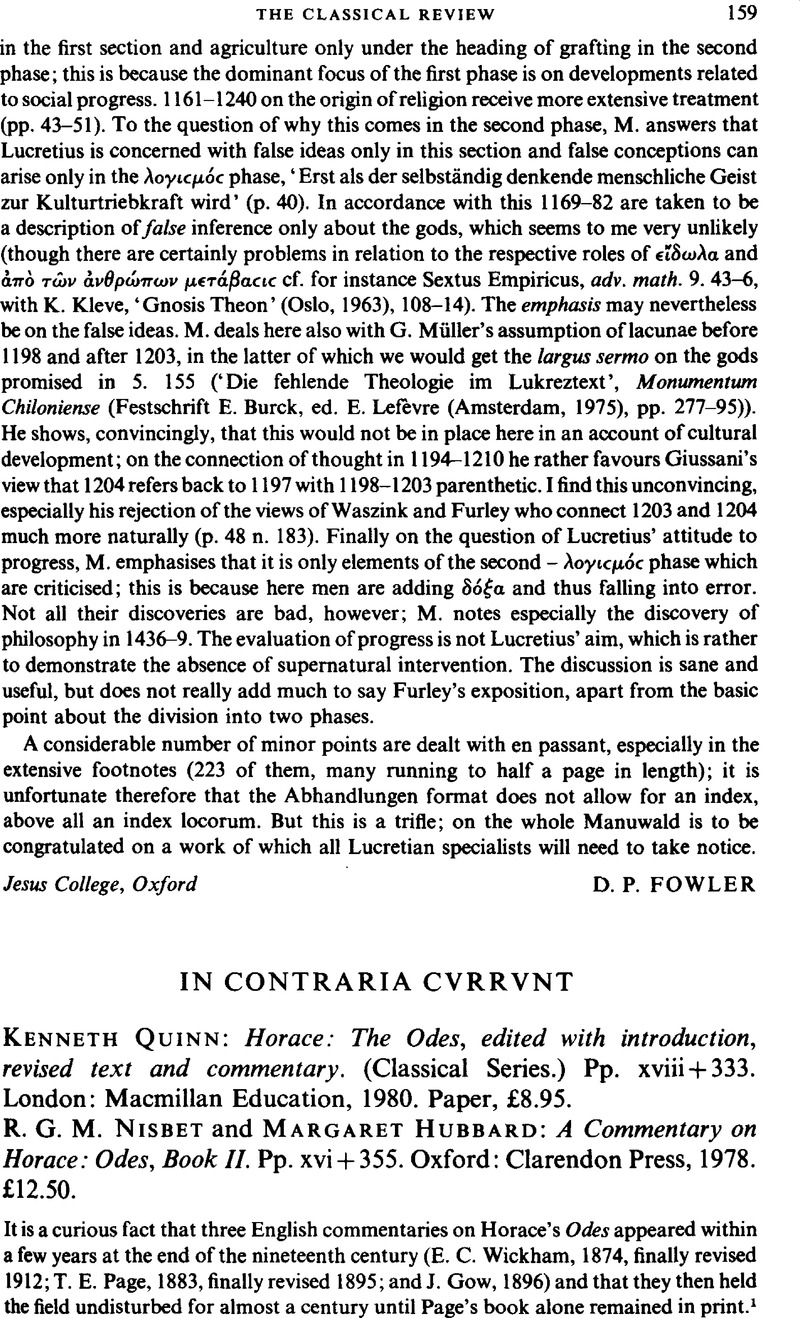No CrossRef data available.
Published online by Cambridge University Press: 27 February 2009

1 The American edition of P. Shorey and G. J. Laing (Chicago, 19102) made no impact on this side of the Atlantic.
2 ‘The best English commentary, but still short on literary history’ N(isbet)–H(ubbard) 1. lii; ‘brief commentary, often good, on more scholarly lines than Gow and Page’ Q(uinn) xviii.
3 ‘The best in this group, though occasionally wrongheaded’ Q. xvii; ‘An elementary commentary by a good scholar’ N.-H. 1. lii.
4 ‘A useful school-book, but less attractive than’ his ‘Virgil’ N.-H. 1. lii; ‘the most widely used edition in English schools during the present century’ Q. xvii. Long acquaintance perhaps prejudices me in its favour.
5 An indispensable collection of original, profound, and individual notes towards a commentary.
6 ‘Brief and not always clear, but has far wider horizons than any other commentary.’ N–H. 1. lii.
7 Quinn, K., Phoenix 34 (1980), 257 f.CrossRefGoogle Scholar
8 cf. Suerbaum, W., ‘Gedanken zur modernen Aeneis-Forschung’, Der altsprachliche Unterricht 24 (1981), 67–103, esp. 87–95.Google Scholar
9 It is surprising that an editor of Catullus should not remark the echo of Catullus 51. 13–15 at 2. 16. 1–6, although the parallel echo at 2. 6. 1 f. is noticed.
10 Quinn's book has been rather poorly printed (at Hong Kong!).
11 As Macmillan commissioned a book ‘roughly the same size as Page’ (Q. vii), Quinn had in some ways an unenviable task (Page thought that two pages of commentary for one page of text was ‘an almost irreducible minimum’ – Page–Palmer–Wilkins, , Q. Horati Flacci Opera (abridged edition), London, 1910, vGoogle Scholar). More space would enable more Latin to be quoted – a great benefit for students.
12 Quinn, K., Phoenix 34 (1980), 259.CrossRefGoogle Scholar
13 I see this point has been made already by M. L. Clarke in his review of Nisbet and Hubbard's Odes Book I (CR n.s. 21 (1971), 204; cf. also La Penna, A., Gnomon 44 (1972), 348 f.Google Scholar).
14 The full evaluation of these commentaries requires close attention to a multitude of detail: readers will find an instructive comparison of Quinn with Page in the fascinating biography by Rudd, N. – T. E. Page, Schoolmaster extraordinary, Bristol, 1981 (pp. 48–49).Google Scholar